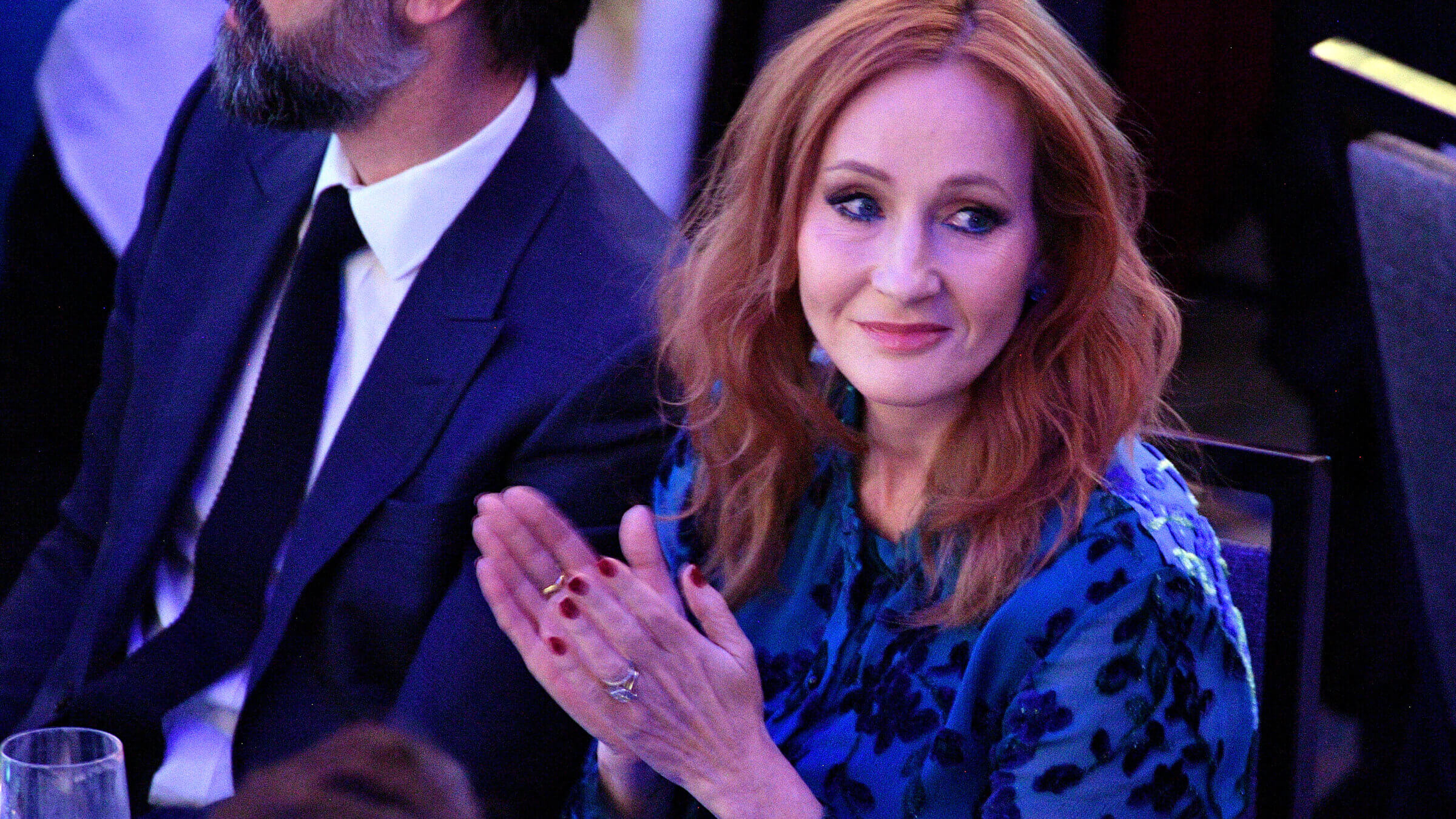J.K. Rowling didn’t want to be called a Holocaust denier. That backfired.
The author’s attempts to quiet her critics ended up making the accusations far more viral.

J.K. Rowling at an event. Courtesy of Getty Images
The Streisand effect is a phenomenon that occurs when someone attempts to hide information but winds up boosting it to far more eyes. The name comes from the time Barbra Streisand tried to suppress a picture of her house. The lawsuit against the photographers ended up garnering far more attention than the original photo, which was not a paparazzi pic — just an aerial photograph taken to document erosion — ever would have.
Another famous woman is currently in the middle of a massive Streisand Effect right now: J.K. Rowling.
“J.K. Rowling is a Holocaust denier” trended on X this week.
But why — or more accurately, why now? A few weeks ago, discourse surged around Rowling after the author tweeted alleging that Nazis did not target trans people. People immediately corrected the record — Nazis did target trans people, including pillaging and burning a library full of research on gender — and many noted that Rowling’s original allegation amounted to Holocaust denial.
The renewed hubbub is due to a tweet from British Jewish journalist Rivkah Brown. “On 13 March I tweeted that JK Rowling ‘is a Holocaust denier,’” she posted. “That allegation was false and offensive. I have deleted it and apologize to JK Rowling.”
This apology was transparently a response to the threat of litigation. During the original clamor about Rowling and Nazi persecution of trans people, Brown tweeted: “J.K. Rowling is questioning the well-documented fact that Nazis targeted trans people. She’s now a Holocaust denier.” In response, Rowling tweeted: “I’d be delighted to meet you in court, Rivkah, to discuss Holocaust denial.”
Brown said in an email that Rowling’s legal team demanded not only that she delete the tweet, but apologize. Brown said that she lacks “the financial resources to engage in a legal battle with Rowling,” so she issued the apology.
When Brown’s apology went live, people on X assumed there had been a legal threat, and began tweeting the same claim that she had retracted.
They could because of a difference in libel laws between the U.S., where freedom of speech is protected, and the U.K., which is famed for its restrictive defamation laws. In the U.K., whoever has published a statement bears the burden of proving that it is not just likely to be true, but definitively true — a high bar. Meanwhile, the person claiming injury must only prove that their reputation was damaged in the eyes of “right-thinking members of society.”
The U.K.’s libel laws favor those claiming injury so heavily that those seeking to sue over defamation often become “libel tourists,” bringing their cases in the U.K. even if they live elsewhere. Publishers often refuse to release controversial books in the U.K. for fear of losing a libel suit.
Rowling is well known for leveraging the U.K.’s defamation laws against her critics.“Give my regards to your solicitor!” Rowling replied to an online critic last year who had also noted overlaps between the author’s views and Nazi ideology about gender. They later removed the offending tweet and replaced it with an apology.
Brown said she was concerned that the incident, and others like it, “effectively gives carte blanche to wealthy Holocaust deniers” who have the funds to legally pursue anyone who might call out or correct their statements.
But in the U.S., free speech is heavily protected; claimants must prove not only that a defamatory statement is false, but also that it was disseminated with “malicious intent.” U.S. courts will not enforce U.K. libel rulings unless they comply with U.S. standards of process and free speech. And many states have laws protecting people against SLAPP (Strategic Lawsuit Against Public Participation) suits, a legal strategy of silencing critics through numerous costly lawsuits.
This allows X users in the U.S. to state their opinions on Rowling’s views openly. And Rowling’s attempts to silence her critics have only encouraged them, and brought accusations of Holocaust denial to a much wider audience.
Streisand actually lost her case against the photographers; they left their photograph up. But even though Rowling got Brown to remove her tweet, she still lost. Now even more people are accusing her of Holocaust denial.

















